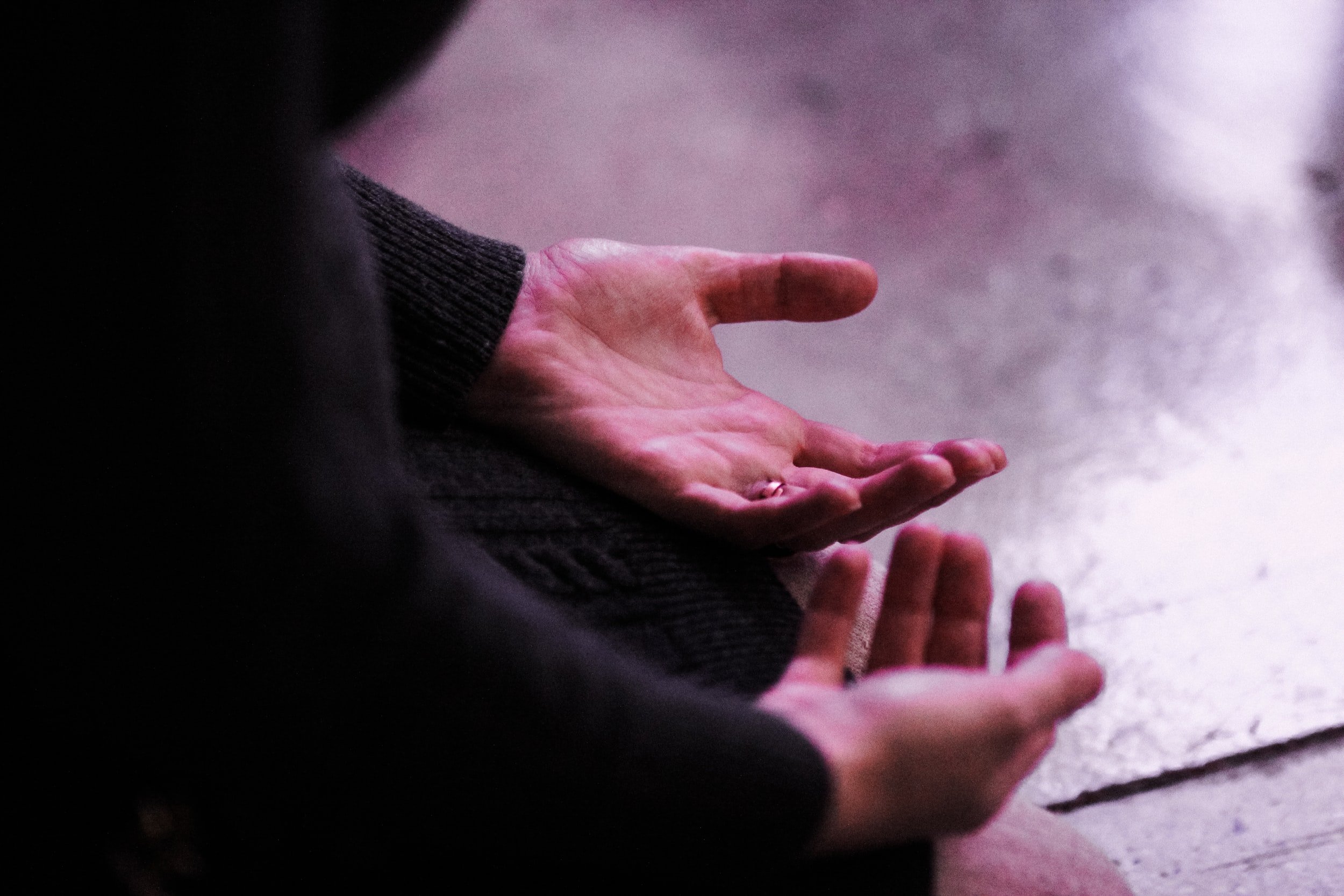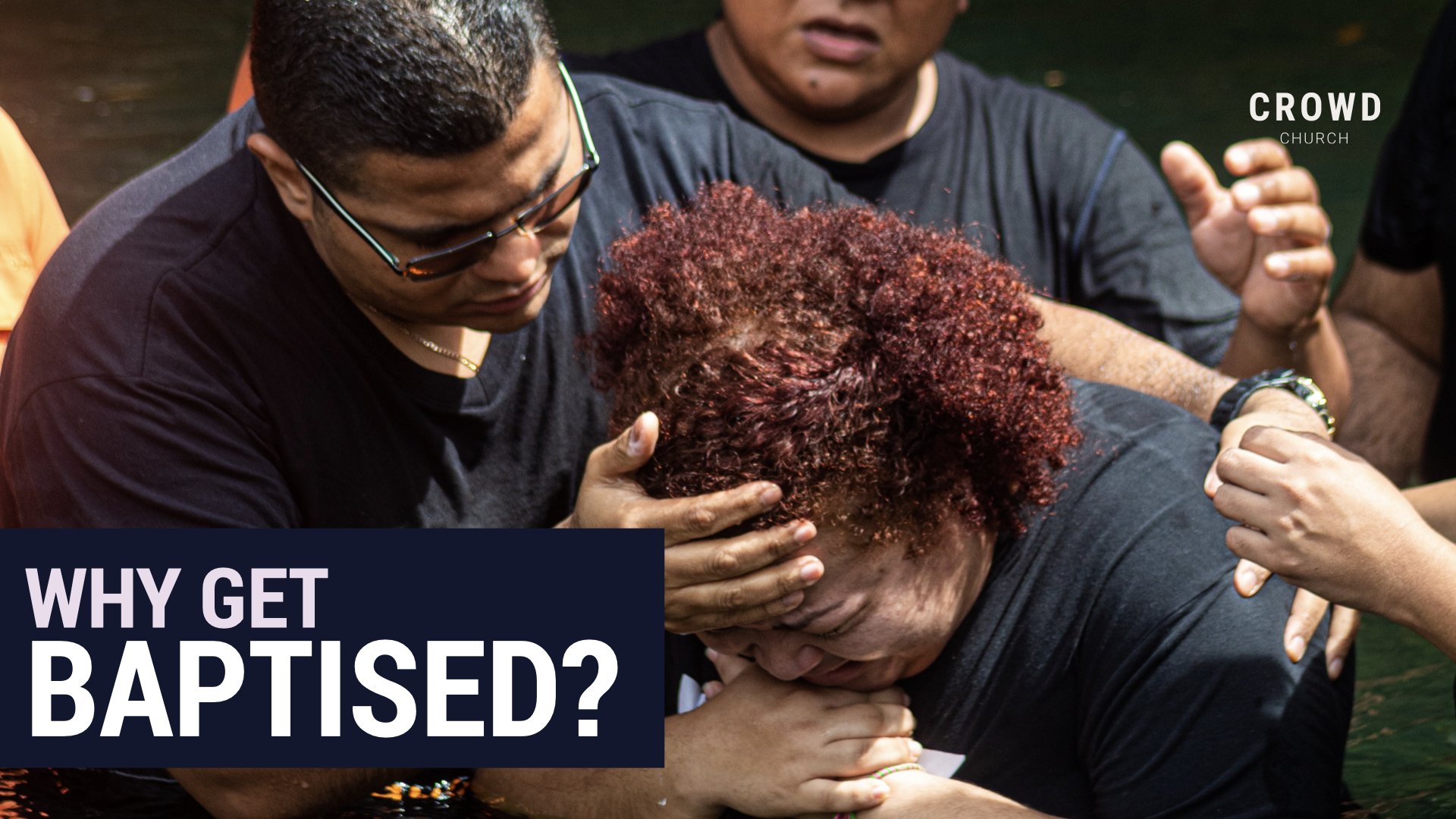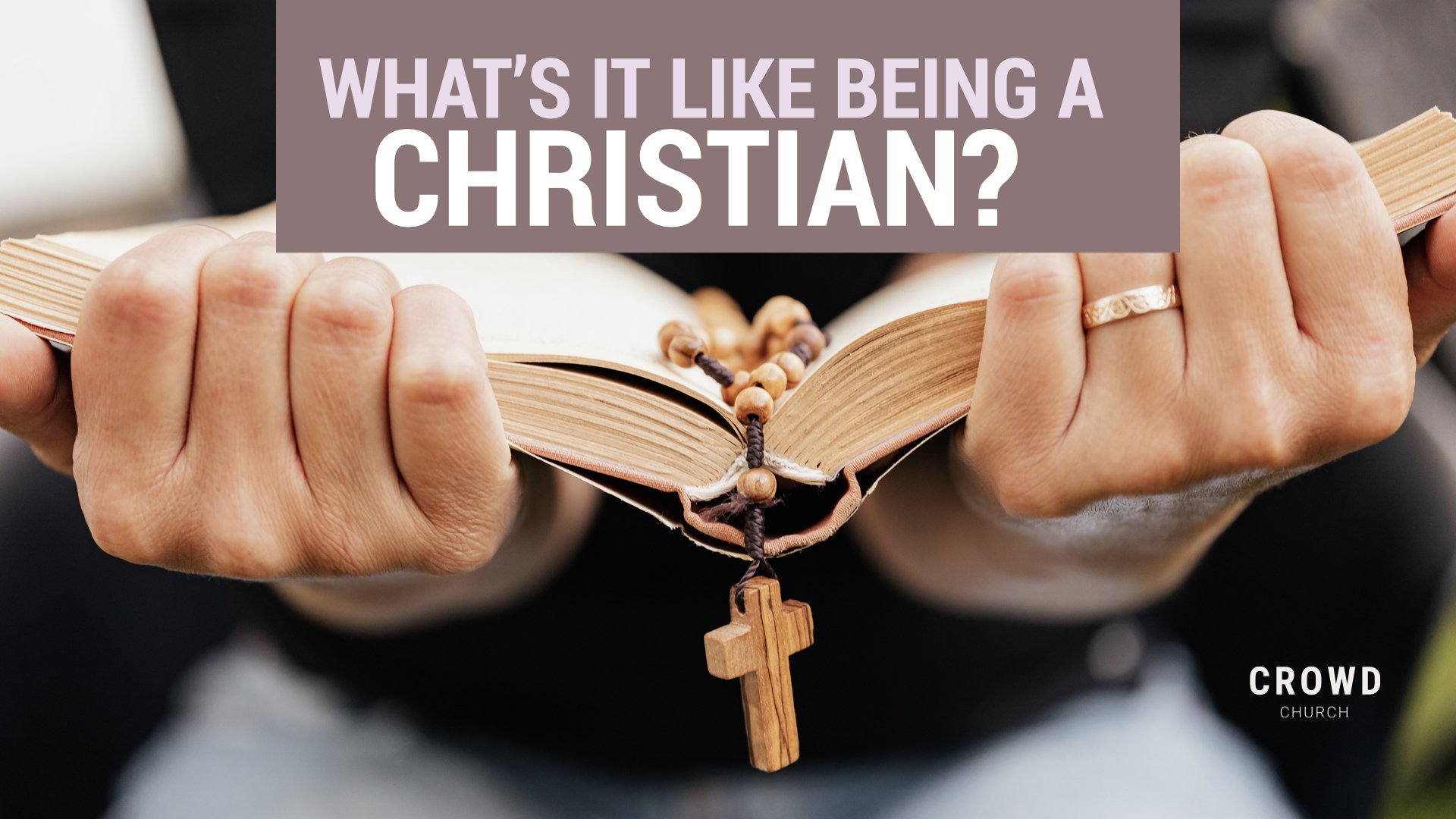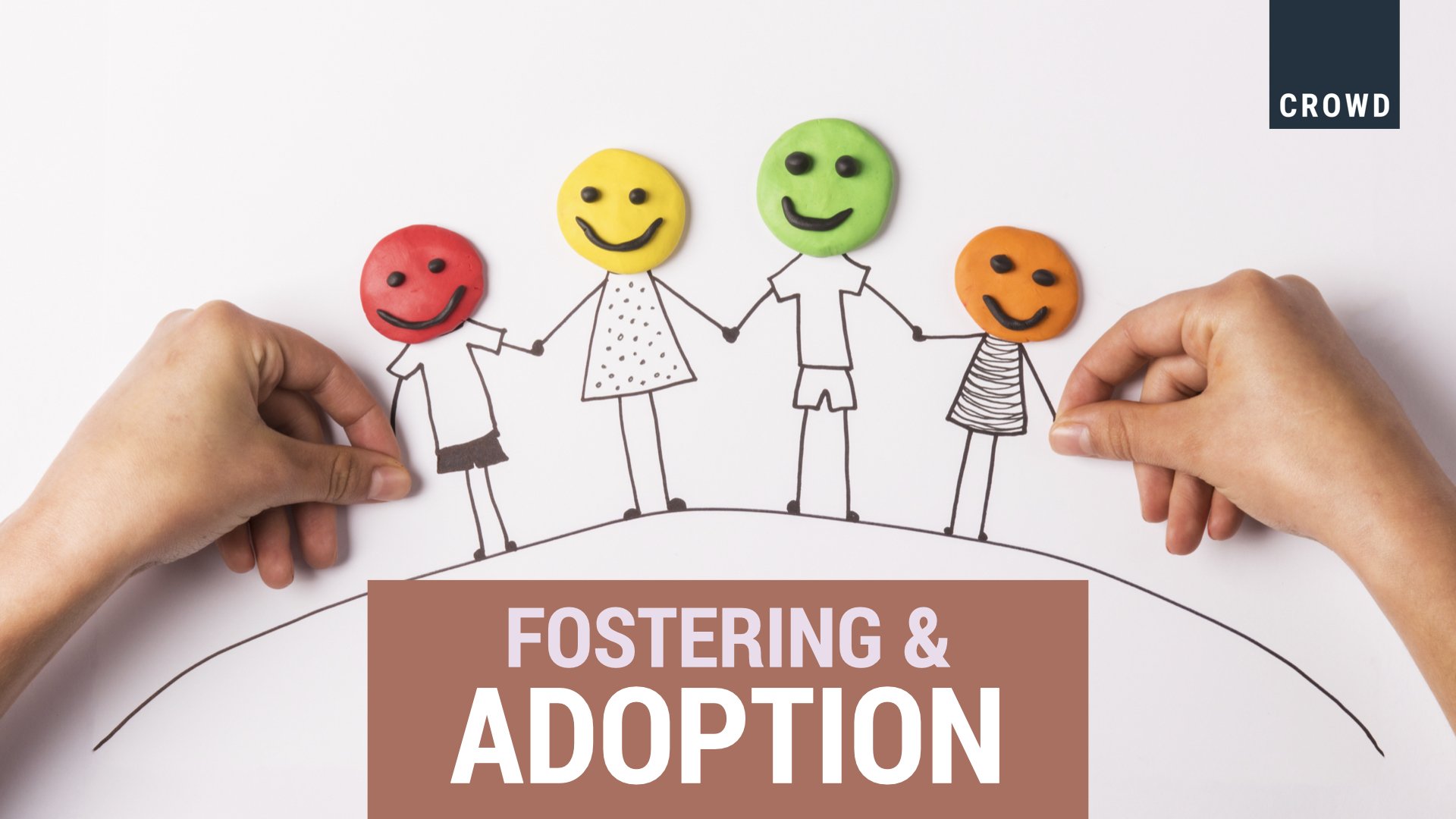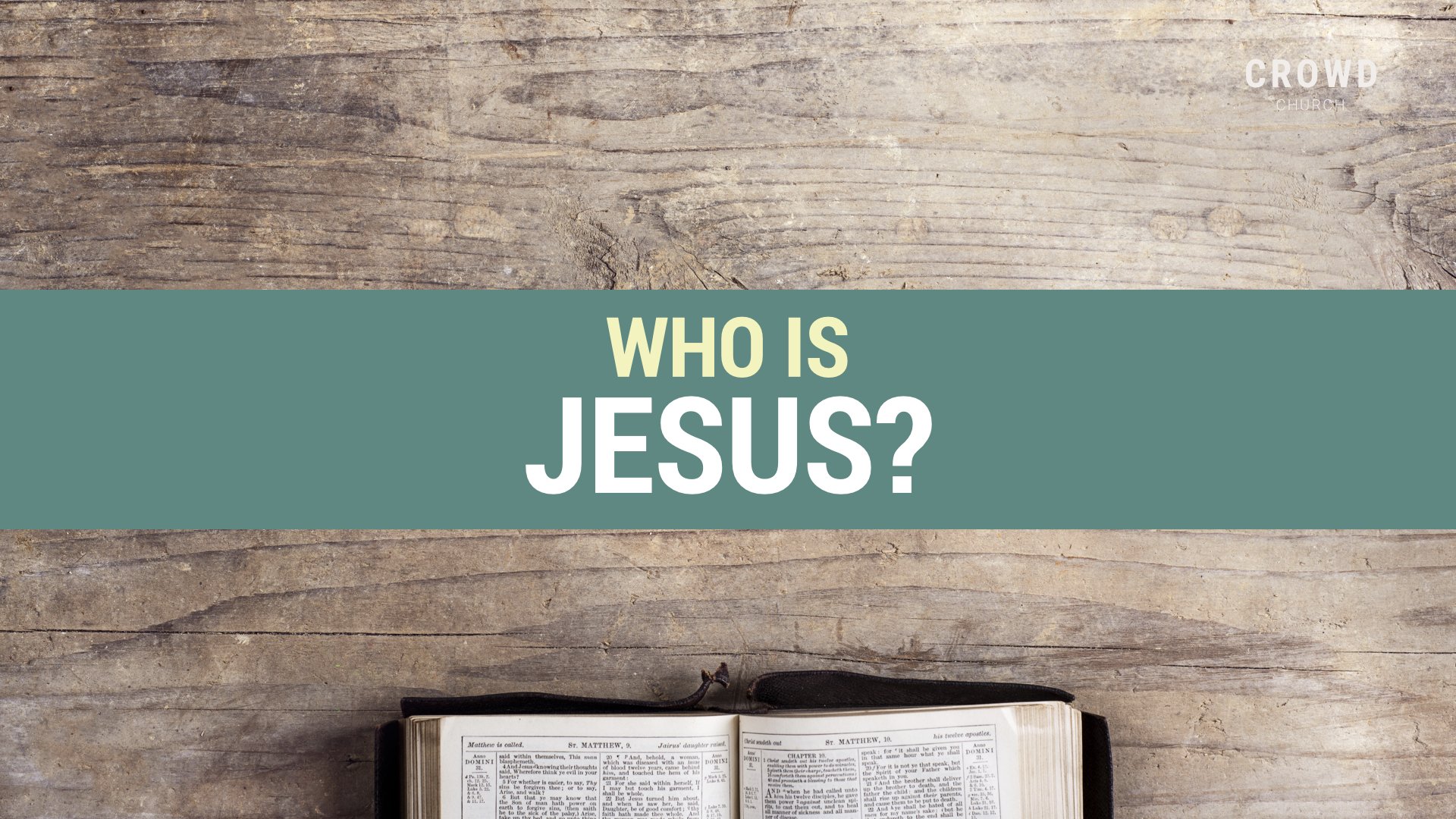What Does The Bible Say About Anxiety?
Video Timeline
WELCOME
05:11 - Welcome with Matt & Rachel
TALK with Sharon Edmundson
11:16 - What Does The Bible Say About Anxiety? - Sharon
12:40 - Are Fear And Anxiety Wrong?
13:21 - Emotions Are A Gift From God
14:36 - Is Anxiety Godly Or Sinful?
16:44 - How Does The Bible Help Deal With Anxiety?
32:38 - Why Does The Bible Tell Us Not To Worry?
WORSHIP
35:59 - Worship - When Hope Is In You with Lyrics
CONVERSATION STREET with Matt, Sharon & Rachel
40:43 - Conversation Street
48:35 - Do You Think Anxiety Is A Taboo Topic Within Church?
53:37 - Why Would God Talk About Anxiety?
58:40 - Don't Be Afraid Of Professional Help
1:00:15 - Identity
CLOSING WORSHIP
1:06:36 - Overcome with Lyrics
Podcast:
What does the Bible say about anxiety?
— Sharon Edmundson
What Is Anxiety?
We can define anxiety as a feeling of unease that can be mild or severe. It's different to fear, which is an unpleasant emotion caused by the threat of danger, pain or harm. Fear and anxiety often occur together. They share similarities but have some differences. They are similar in that they affect our emotions, but also our thoughts and our bodies. However, there can be a spiritual element to both.
The Bible talks about people being made up of spirit, soul, and body. These elements are all integrated so that what affects one part, often affects the rest. For example, some physical conditions such as an overactive thyroid, changing hormones, or a vitamin deficiency can cause anxiety due to an imbalance in our bodies.
Fear and anxiety are different in that fear relates to a known threat, a threat that is present now, whereas anxiety is because of an unknown, unexpected or a poorly defined threat. With anxiety, we often imagine worst case scenarios. Now everyone feels worried or fearful from time to time, and the feeling usually passes once the anxiety or the fear-inducing situation is over.
Are Fear And Anxiety Wrong?
In some cultures, there's a subconscious belief that the person who never struggles with emotions, including fear and anxiety is the better, more virtuous and more courageous person. This idea has infiltrated the church in the past, and is still with us today to a certain extent.
For example, we can read Bible verses such as Philippians 4, which says, 'Don't be anxious', and then we can feel bad for feeling that way. This can cause us to pretend we're fine, when actually we're not.
So is it wrong to feel anxious and fearful? I don't think so. I'll explain why. I believe that God gave us our emotions as a gift. The Bible says we're made in the image of God and one of the ways we're like him is that we have emotions.
Emotions Are A Gift From God
As Christians, we believe that God came to earth in human form, as the person of Christ Jesus, and we see him experiencing many emotions. For example, when his friend died, he wept, even though he knew he was about to raise them from the dead. Jesus expressed God's love and compassion to a woman who other people wanted to stone to death. He was angry when he saw religious people exploiting both the temple as well as other people. He experienced intense and deep distress when he was praying in a garden just before his execution.
Emotions help us evaluate situations and take action. They tell us how we are. Emotions in and of themselves are not bad; they're not sin, but we can react to them in unhealthy or even sinful ways.
Take anger for example. The Bible says that when we're angry, we're not to sin. In other words, anger is an appropriate and a godly response to some situations. But we're not to use that as an excuse to lead us into wrong actions.
So Is Anxiety Godly Or Sinful?
I think it's the same with fear and anxiety. They can actually be a good thing when they allow us to recognise genuine threats or the possibility of threats and respond in a way that keeps us or others safe. They can give us the drive to prepare well for a presentation at work, or to work hard for an exam, or to flee from the Taliban. But they can become a problem in a number of ways.
For example, they can cause us to react to situations in unhealthy ways, maybe we stay in a consciously apprehensive state and wreck our bodies in the process. We can create anxious thoughts about things that aren't actually a threat and instead of using our God-given gift of imagination to think of all the amazing things God has for us in the future, we use it to imagine the worst case scenarios. Maybe we turn down good opportunities, or don't do what we know God has told us to do.
Now, some people naturally worry more than others and I come from a line of worriers. My great grandfather committed suicide because of anxiety surrounding money. It was my granddad, who was 15 at the time, that found him. As a teenager, and as a child, I had several physical symptoms caused by anxiety. At times, I'd find it hard to swallow, I had severe chest pain that made me think I was having a heart attack. At other times I'd have palpitations. I had investigations, and it was decided that the root of my physical symptoms came from anxiety. I was scared about things going wrong, about the possibility of accidents and illnesses, I would worry about not being good enough in social situations with people I didn't know and the list just goes on.
How The Bible Has Helped Me Deal With My Anxiety?
First, I want to briefly talk about dealing with the past and then about dealing with the present and the future.
Dealing With The Past
I did this by dealing with my own sin, by seeking forgiveness from God, but also learning how to forgive others.
Something that has helped me get rid of an anxious heart is faith. The simplest definition of faith is believing what God says, rather than what our feelings or what other people say. Faith helps us deal with the past, the present and the future. See, I often felt on edge because I didn't think I was worthwhile or that I couldn't cope with situations. When we don't know our own worth, that we're accepted, we can feel so self-conscious in situations when we're with other people.
My thinking had been based on stuff that wasn't true, but God's Holy Spirit began to teach me that just because a thought comes into my head doesn't mean I have to believe it. I can choose to reject thoughts if they're lies, and I can choose to believe the truth, even if it doesn't feel true to begin with.
I began meditating on Bible verses about anxiety anfd identity such as I'm God's workmanship (Ephesians 2:10). I'm loved with an everlasting love (Jeremiah 31:3). My heavenly father loved me so much that He sent Jesus to die for me (John3:16).
Every day for months, I would think about these things and speak them over myself out loud, until they begin to sink deep into my spirit. It changed the way I felt, and some more of the anxiety disappeared.
Dealing With The Present And The Future
Philippians 4:6-8 says,
“‘Do not be anxious about anything, but in every situation by prayer and petition with thanksgiving, present your request to God. And the peace of God which transcends all understanding will guard your hearts and your minds in Christ Jesus. And finally, brothers and sisters, whatever is true, whatever is noble, whatever is right, whatever is pure, whatever is lovely, whatever is admirable, if anything is excellent or praiseworthy, think about such things’. ”
In the original Greek, the word "anxious" has connotations of meditating on apprehensive thoughts. These verses are like step by step instructions. You may have noticed that I referenced verse 6 earlier. But in fact, it's not telling us that we're awful and ungodly people if we feel this way, it's telling us how to handle our anxiety.
I'm going to give you an example of a situation where these verses really helped me.
Matt and I had the opportunity to go to the USA to take part in a church conference there. Matt really wanted to go, and I really didn't want to go. I was really nervous about flying and all the potential things that could go wrong, especially whilst being pregnant with our second child because our son Josh wasn't quite two at the time. I don't think the pregnancy hormones really helped with this either.
So I didn't want to go, but I didn't want to stop Matt from going. I also didn't want to let him go and be on my own at home. I didn't like any of the options available. So I prayed and asked God if I should go on the trip or stay at home, which might seem like a silly question. But I just felt so unsure and I just wanted someone to tell me what to do. After I prayed, I had this sense that it was fine for me either to go or to stay. But if I stayed, I'd miss out on something good. That wasn't the answer I wanted.
I turned to the verses in Philippians for help. The first thing it says is, "by prayer and supplication with thanksgiving let your requests be made known to God". So that's what I did. I wrote down each worry, and asked God to speak to me about each thing individually. The second thing that it says to do is thank God, and the thanking God bit comes before we've had the answer to our request. We thank Him in faith that he hears us and will help us. So I thanked God that he cared about my worries, and that he would speak to me. Over the next days, I wrote down anything that I felt that God had spoken to me about.
Something changed in me through these verses, and the peace that it talks about started to come to me. In the end we had a whole row of seats each on the plane, which meant I could just lie out flat, and even Josh was great on the journey.
I gave God my anxieties, and he gave me peace. It was just as this verse said.
What About When Things Don't Go Our Way?
How about when there's long term illness or someone we love dies, when we don't know what lies ahead? This passage in Philippians is still valid here. The same principles apply, no matter how big or how small our situation.
Surrender
Jesus tells the disciples in the garden before he was arrested and put to death,
“Then He said to them, “My soul is overwhelmed with sorrow to the point of death. Stay here and keep watch with me.” Going a little further, he fell on his face to the ground and prayed. “My father, if it’s possible, may this cup be taken from me. Yet, not as I will, but as you will.””
The good news is that Jesus Christ knows what it's like to feel so overwhelmed with such deep and difficult emotions. I find it comforting that he needed people around him to help support him. He's not praying a quick prayer and then he's feeling okay again. He's wrestling in prayer. But he gets to the point of surrender to God. And I think surrender is a key word here.
He tells God the Father what he wants, but he says in effect, I'll submit to you, I know you. I love you and I trust you, even though the darkness is closing in, even though I'd prefer an easier way.
Jane
Now I have a friend called Jane. When she gave her life to God, her fear of death left her. But she was still afraid of someone she loved dying. And in 2004, Jane's fourth child, Joel was born with multiple holes in his heart. He was actually a friend of our son Zach. He had an operation as a baby to help contain the situation, but they couldn't do a curative operation at the time, because it was considered too dangerous. So the plan was to wait for him to get a little bit bigger, and then do the op to repair the holes a bit further on.
But as you can imagine, this all played into Jane's fear of someone dying. It was actually through a particular Bible study several years later that even this fear left her. One verse in particular that came to mean a lot was
“Some trust in chariots and some in horses, but we trust in the name of the Lord our God.”
It wasn't until Joel was eight that he finally got a date for his operation at Alder Hey children's hospital in Liverpool. Now, the operation itself went well, but his recovery didn't. He ended up getting flown down to Great Ormond Street Hospital in London to be put on an ECMO machine as his lungs weren't working. Jane said it was an incredibly intense time. But she didn't feel afraid, just supported both by people and by God.
Every morning, while Joel was in hospital, she'd wake up, she would cry, she would worship and she would pray. It was a really, really emotional time. There was an intensity of grief as she realised that she was actually losing Joel, but also an intensity of God's presence. The Psalms in the Bible were also a massive comfort to her. Like Jesus, she came to that place of surrender. Joel died in her arms in the August of that year, but Jane's story is an example of how we can experience God's peace in situations where naturally we'd be worries and afraid.
And that peace was beyond understanding as the verse in Philippians says, it was a peace despite circumstances, not because of them. And surprisingly to me, she still doesn't actually have a fear of someone she loves dying, I would have thought that that would actually make her more fearful because it's happened. But she says that she's been there, and she's known God's love, comfort and His peace.
Being Vulnerable With Others
My friend Tim also went through a really tough time recently. So I asked him, what helped him to get through and here is his response.
Tim
Hi, my name is Tim. And I want to tell you a little bit about what happened to me. In August last year, I suffered a heart attack and five ventricular tachycardias, which means my heart was ultra fast pacing, and I almost died five times. I was in critical care in hospital. It was a tumultuous time.
Now I'm a Christian but post-event I experienced anxiety that caused me to ask very basic questions about who I was, what the point of life was, whether I should live and what I should do with the rest of my life if I did live.
The Story Of Elijah
I wanted to share how one story in particular was helpful to me in that process of recovery. That's the story of Elijah in 1 Kings 19. The story explains how following a load of victories, Elijah faces terrible adversity, and so he runs away. He has all these victories, and then he gets a death threat from a lady called Jezebel. It makes him really scared and he runs off and hides under a bush. Then we see God dealing with Elijah and this is what really helped me.
The start of his recovery was his ability to be vulnerable. That was the same for me. In recovery, I felt God led me towards a place where I was able to be vulnerable, to share, listen and reflect on my deepest hurts with important people in my life. The problem we see with Elijah is how the enemy has gone after his identity. He's questioning who he is entirely. He wants to die. He says I'll be only as good as my ancestors. And to be honest, I felt similar. But when I was able to be vulnerable with other people, they were able to reflect back to me the truth of my identity in God. It wasn't something I could see in the place where I was at, but when my friends reflected it back to me, it broke the power of isolation that comes with anxiety.
The second thing was, God met with Elijah simply. He gave him sleep, bread and water. Sometimes when you're anxious about your life, it's because there are things you need to recover from.
Thirdly, God gave Elijah clarity. Elijah listened for the voice that would supersede the voice within him. And God spoke to Him with a still small voice.
It really helped me hearing that story from 1 Kings 19. I hope it helps you. And wherever you face adversity, or anxiety, remember that you can break the power of isolation by doing the journey with other people. That took for me to meet a counsellor, to spend time with another family friend, to go to a support group for those who had survived critical care, as well as listening to the voice of the Holy Spirit through Scripture. That's my story.
- Tim
One of the things that I love about hearing how God's helped other Christians in difficult situations, is that they have completely different angles on the same subject. It's the same God, It's the same good news, but they draw on different aspects of it like different facets of a diamond.
So Why Does The Bible Tell Us Not To Worry?
God cares for us. We're important to him, and he wants to help us. Even though things may be tough, one day, he's going to put all the wrong things right. We have a hope. We can hang on to this hope, even when our emotions are all over the place. We can hang on to God's words when we can't see clearly.
I've had times when I felt as though I were like a pilot flying a plane through thick clouds, and I couldn't see past my own trouble. I wasn't sure which way was up and which way was down. My emotions were all over the place. But God's words are like the instruments on my plane, guiding me, leading me to a better place.
I sometimes have this expectation that I should feel great all the time. But that's not reality. We've seen that Jesus had times of intense and difficult emotions. He wasn't always in a place of great happiness, and neither will we be. But we can trust God to lead us.
The Lord Is My Shepherd
I'll leave you with these verses, which you may be familiar with. In them, God is described as a shepherd leading us through this journey of life in the lovely times and the difficult ones too. Our destination isn't the hard stuff we're going through now. We're just passing through. A better day is coming.
“The LORD is my shepherd, I lack nothing. He makes me lie down in green pastures, he leads me beside quiet waters, he refreshes my soul. He guides me along the right paths for his name’s sake. Even though I walk through the darkest valley, I will fear no evil, for you are with me; your rod and your staff, they comfort me. You prepare a table before me in the presence of my enemies. You anoint my head with oil; my cup overflows. Surely your goodness and love will follow me all the days of my life, and I will dwell in the house of the LORD forever.”
CONVERSATION STREET
With: Matt Edmundson, Sharon Edmundson & Rachel Marshall.
What is Conversation Street?
Conversation Street is part of our live stream, where the hosts (in this case, Matt & Rach) chat through Sharon’s talk and answer questions that were sent in through the live stream. To watch the conversation now, click here.
Matt: What Stood Out To You From The Talk, Rachel?
Rach: I love hearing people's stories. Tim's story in particular really resonated with me, because when he said what was going on with him, and his fear and his anxiety, with some people that he really trusted, then they could all then address what was really going on.
I'm involved in family support with my job and I support a lot of parents where anxiety is a big issue. It can be quite debilitating at times, and my heart really goes out to them. I think when people are really isolated, and feel ashamed, then that just compounds things that are going on in them. Sharing it doesn't mean that it goes away, but it does mean that you can start to look at it. I love the way that he got professional help too because I think there are certain times or events in life where we need professional help or professional input to maybe give some context or to say, "no, your reaction is perfectly normal there". I'm sure for Tim he needed to hear that.
Do You Think Anxiety Is A Taboo Topic Within Church?
Matt: Some say a problem shared is a problem halved, but I was raised with the worldview that a problem shared is a problem two people have got.
Sharon: I think it's improving, but I do think there's been a lot of stigma around it. I think we can't necessarily control our initial reaction to situations. So we need to be able to share. From my own understanding, those verses in Philippians, which talk about coming to God and saying what the problem is, like with Jesus getting his mates around him to support him, show that the idea of sharing all my fears with God is clearly supported in Scripture.
For some reason we've made it seem like you've got to pretend everything's okay. And that's not healthy.
Rach: Because the Bible says, "do not be anxious", you can think, "oh, but I am", therefore, I feel bad. I've definitely felt like that.
Sometimes it feels like you're not allowed to have a break down or get upset, particularly when it comes to mental health. My children's generation are a whole lot better about talking about things more openly because it's within their school curriculum. We had to learn the hard way, to be honest and vulnerable, but if you look in the Bible, there are plenty of people that have really had a hard time when it comes to their mental health. And they've been really honest about it. I love that the Bible talks about it.
This gives us hope, and hope is so important. When it comes to anxiety, or depression, or any other mental illness, there is hope. The Bible is full of hope. Sometimes I feel like you have to dig for it and mine for the treasure in the Bible to really help us. I think we're getting better as a church in general. But you know, we do need to keep thinking about these things and talking about them.
Cast All Your Anxiety On Him
Matt: 1 Peter says, humble yourselves under the mighty hand of God, that He may exalt you in due time, or lift you up, casting all your anxieties on Him, because He cares for you.
Now that word, "care", is the same word that Paul uses when he says do not be anxious. So do not care about anything, as in, obviously it's good to care, but do not be anxious about stuff. So Peter here is saying cast all your anxieties on God, for He cares for you.
Why Would God Talk About Anxiety?
Why would he give us mechanisms to deal with it? Why would he be interested in helping us with anxious thoughts rather than leaving us to it. God does this because He cares for us and He wants us to find rest in Him.
Casting your anxieties though, doesn't sound like an easy process to me. It sounds like there's a bit of effort involved. Is it just a case of saying, God here are my anxieties and there you go, or is there a bit more involved?
Recognising Anxiety
Sharon: I can think of a few times during lockdown where something would happen and I would get quite intensely anxious about it. I'd like to say that my first response was to go and take it to the cross. Sometimes it takes me a little longer to realise. On one particular occasion I'd talked to a few people about how I was feeling. It was from hearing what one person said that made me realise I'd heard from God, and then I was okay, but actually, to get to that point took a little while.
Rach: Yeah, it's definitely a learning process. I think sometimes I don't even realise that I feel nervous about something. The pressure of life gets to a point and I suddenly realise I'm really overwhelmed. Then I have to take myself away from it, and have some time by myself.
I think it's good for me to get outside and get in nature and go walking. I find that really helpful. In the verse that says, "do not be anxious about anything", he then talks about nature, and to think about the birds of the air, and how our heavenly father feeds them, which means I can trust Him with this thing.
For me, my job can be really stressful. I really care about the families that I'm involved with, and some of their situations are heartbreaking. It's almost like I have to trust the families and what I really care about to God, because I can't control the outcome, but I can invite God in to help them on what they're going through. It's an ongoing process of learning and trusting in Him.
Trusting In God
Matt: The comment you said there about not controlling the outcome just instantly made me think about Jesus in the garden and surrender. We get anxious when we can't control the outcome. We don't know what's going to happen, and it could be potentially bad and that makes us nervous. Coming to a place like Jesus did in the garden, "not my will but your will be done", means even though I don't understand what's going on I know you've got this in hand.
To me the key part of dealing with anxiety is the ability to trust God and to give God these things and know that he is good, and that he will deal with it.
Romans 15:13 says,
“May the God of hope fill you with all joy and peace as you trust in Him...”
I know I would struggle if I didn't have that. I wouldn't know where else to put that anxiety.
Don't Be Afraid Of Professional Help
Rach: I have had times of depression in my life, although not medical anxiety. Ultimately, I believe 100% that God can and wants to heal us. But some people need medical support in order to manage some of these symptoms of anxiety. I remember reading someone's book around this topic once and I was like, gosh, to deal with that and the the onslaught of anxiety. That must be horrendous. And so I think for some people, they definitely do need medication to help them. Tim, for example, did, so I would never want anyone to feel bad if they need medical support to manage anxiety.
Identity
Matt: This stigma around Christians with anxiety needs to stop, and it's not right. We're not saying we have to live in anxiety for the rest of our lives because God is bigger than that. God can still work both in and through us during that. That's the hope that we have. We're saying, in the midst of all that I'm feeling, God can still do something really good in and through us when we when we trust him. I've known people that totally shut up shop because of feeling ashamed and I've known people who have accepted that this is me, this is who I am. I'm just going to be this way for the rest of my life. Both extremes seem a bit off to me. God can still be in this regardless.
Sharon: As Christians, the good news is that our identity is not, "I'm an anxious person", our identity is who God says we are. We are children of God, we're loved. Anxiety is not part of our identity, even though it feel like that sometimes.
We might hear someone else's story and go, oh yeah, but God's not come through for me like that, but let's not compare ourselves. Let's seek God for ourselves, and see what he wants to do in us and not think he has to do it how he did it for them.
Rach: There's a book called Lamentations. It was written at a time when the children of God went through desperate times. The person that's writing it is brutally real about what they're going through. Then, right at the very end of the book, it shares the verse,
"The steadfast love of the Lord never ceases, His mercies never come to an end. They are new every morning. Great is your faithfulness."
Lamentations 3:22-23
There's the hope. And I think, yes, we've got to be real, we've got to be vulnerable, we've got to be honest, and by doing so we make way for the good news of God to come. In really dark times, that verse can be the key to unlocking that hope. Every single day, God gives us a new morning, and there's fresh mercy, and there's fresh hope, no matter what happened the day before.
Matt: Awesome. Ladies, thank you so much.
If there is anything that has come up today that you would like us to pray about or anything that you would like to talk to us about, then you can get in touch with us via the website.




